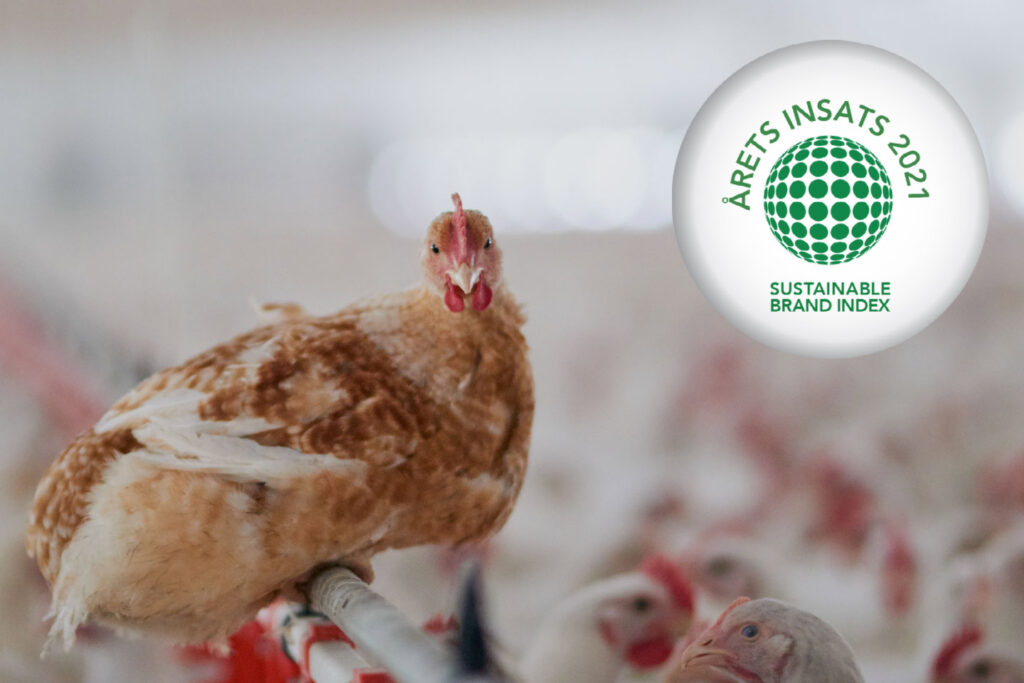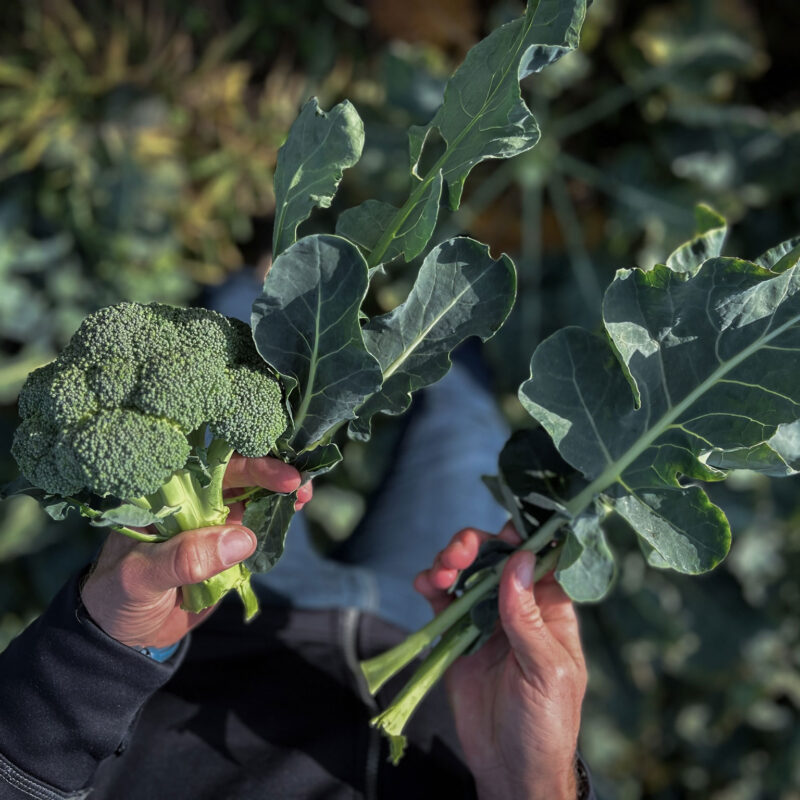Axfoundation’s Antibiotic Criteria awarded Venture of the Year by Sustainable Brand Index
2021.03.12

Axfoundation’s antibiotic criteria 2.0 for reduced antibiotic use in food production is awarded Venture of the Year 2021 (Årets Insats) by the Sustainable Brand Index, Europe’s largest independent brand study focused on sustainability. An important ingredient, according to the jury, was the broad industry collaboration that led to the voluntary list of criteria for antibiotics and animal husbandry that food companies can set for suppliers when purchasing meat, dairy products and seafood.
“This is a prize we share with all the partners who together with Axfoundation have developed the antibiotic criteria. This prize contributes to highlight the urgent threat of increased antibiotic resistance to the public global health, and the link that exists to global food production.To solve such complex the sustainability challenges, collaboration is key. The Antibiotic Criteria is a good example of how this can be done in practice”, says Maria Smith, Secretary General, Axfoundation.
Since 2014, Sustainable Brand Index™ awards a jury price called Venture of the Year – honouring an outstanding initiative within sustainable branding and communication. The purpose of this award is to highlight an initiative that is creating a positive impact for people, society or the environment and that can be seen as an example or inspiration for other actors on the market. This year, the jury received over 50 qualified nominations. A difficult choice to make according to the jury, but a unanimous decision named Axfoundation’s Antibiotic Criteria 2.0 as the winner of the Venture of the Year 2021.
Motivation of the jury:
“This initiative is addressing one of the biggest current problems within agriculture and health worldwide and has a multi-stakeholder and industry-wide approach that we really appreciate. It is an initiative that goes beyond legislation and that is pushing the industry for real change. As a jury we are happy to honour Antibiotikakriterier 2.0, an initiative that might not always catch the spotlight in the public eye, but is nevertheless extremely important in creating a more resilient and sustainable food system.”
The World Health Organization classifies antibiotic resistance as one of the biggest threats to global public health. At the same time, overuse of antibiotics in global food production is widespread. Today, more antibiotics are given globally to healthy animals than to sick people. It is the incorrect and unnecessary use of antibiotics that accelerates the development of antibiotic resistance among animals and humans.
“The Antibiotic criteria 2.0 is a concrete tool for buyers to work with in dialogue with suppliers in Sweden, but not least in the rest of the world. The criteria can be used by food companies to set additional requirements and contribute to a positive development in the supply chain in terms of both animal husbandry and antibiotic use,” says Maria Smith.
The list of criteria has been developed by Axfoundation in collaboration with an expert group and reference group consisting of veterinarians, researchers, antibiotic experts and representatives from civil society, industry associations, food producers, food service and grocery retailers.
Several food companies already use the material today, and under 2021 Axfoundation hopes that the stricter version with associated questionnaire will be used in practice by even more actors.

Download the Antibiotic criteria 2.0
Facts about antibiotics
- Overuse of antibiotics leads to antibiotic resistance: Antibiotics cure bacterial diseases and are life-saving drugs for humans and animals. But bacteria can become resistant, impervious to antibiotics and so the drug does not work. Problems with antibiotic-resistant bacteria are growing quickly around the world. Antibiotic resistance can be transmitted between humans, between animals, and between animals and humans. The development of antibiotic resistance in animals is affected, among other things, by how much antibiotic is used, which in turn is affected by, among other things, animal husbandry systems.
- Antibiotic use in animals in Sweden and Europe: The use of antibiotics in animals in Sweden is low on an international level. But the difference between countries in Europe is very large. In Europe, Sweden, Finland, Iceland and Norway have the lowest sales of antibiotics for animals (per kilogram of estimated live weight), according to the European Medicines Agency. Cyprus, Italy and Spain have the highest. In many countries, group treatment with antibiotics via feed or water is much more common than in Sweden. In addition, using antibiotics for growth promotion purposes was banned in Sweden in 1986 and within the EU in 2006. In many other countries, such use is still permitted.
- Voluntary antibiotic criteria complement the legislation: The updated voluntary antibiotic criteria that companies can use in the dialogue with suppliers of meat, dairy products and seafood go a step further than current legislation. The tool also contains an associated questionnaire with follow-up questions to suppliers, and an educational material with basic information about antibiotics in food production. The criteria are not specific to Sweden and Swedish companies, but can also be used by other countries.
- The antibiotic criteria have been developed by Axfoundation together with an expert group comprising Max Troell (Beijer Institute / Stockholm Resilience Center), Jenny Lundström (Healthy Animals/Friska Djur) and Frida Lundmark Hedman (Swedish University of Agricultural Sciences), and a reference group comprising representatives from the food industry, civil society, academia and authorities; Axfood, Coop, Findus, Farm and animal health (Gård & Djurhälsan), ICA, Lidl, The Swedish Food Federation, The Federation of Swedish Farmers (LRF), , Martin & Servera, The National Veterinary Institute, (SVA), Swedish Food Retailers Federation, The National Agency for Public Procurement, Vi Konsumenter), World Animal Protection, WWF in Sweden.

























































